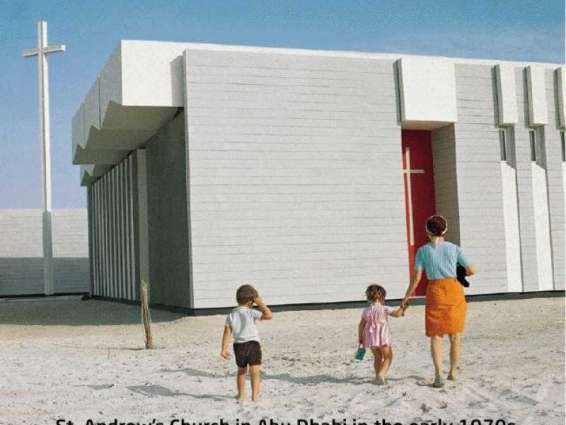ABU DHABI, (Pakistan Point News - 03rd Feb, 2019) The visit to the UAE by Pope Francis, Head of the Catholic Church, which begins today (Sunday 3rd February) is "the climax of recent ever closer interfaith relations, but this event would not have been possible without a deep rooted tradition of spontaneous tolerance embedded in society – its leaders and its people," according to German resident Dr. Frauke Heard-Bey.
Heard-Bey, a historian, has been living in Abu Dhabi for over 50 years.
In this special article for the Emirates news Agency, WAM, on the occasion of the visit, she recalls her memories of the expansion of the UAE capital’s Christian community over half a century.
A Personal View of the Pope’s Visit to the UAE, by Dr. Frauke Heard-Bey "I am not a Roman Catholic. Why am I so moved when the Pope is now coming to the UAE? I think it is because this visit confirms what we have always felt – that we have been privileged to live among people who have been tolerant of other faiths and ways of life ever since the first ‘strangers’ arrived.
What a surprise that a Christian clergyman was the first person to shake my hand as I arrived in what was then the Trucial States! Getting out of the DC-3 on the 30th of November 1967 onto the sandy landing strip that was Abu Dhabi airport, my husband, David, introduced me to a leading figure of the very small Western expatriate community, the Anglican vicar David Elliott. He was among the people waiting to take the Gulf Aviation plane back to Bahrain.
I had taken my husband’s word for it that his company, the Abu Dhabi Petroleum Company, was looking well after the employees and their families, but it was a wonderful surprise to find that I had arrived in a Muslim country, where Christians were not only welcome as individuals but where their spiritual wellbeing was obviously a concern for the authorities.
There were no paved roads anywhere on the island of Abu Dhabi, but a short walk along the shore from where the company had built bungalows for us, was the Anglican Church under construction – not far from the Catholic Church, which had already opened its doors in 1965. The land on which to build these churches had been given by Shaikh Shakhbut bin Sultan, the Ruler of Abu Dhabi. The dedication of the Anglican church of St. Andrew on 15th February 1968 was celebrated by the Archbishop of Jerusalem in the presence of Shaikh Zayed bin Sultan Al Nahyan (later the Founding Father and first President of the UAE), who had become the Ruler of Abu Dhabi in August 1966.
Reverend Elliott’s congregation grew steadily, and at the midnight services at Christmas there was standing room only in both of the two churches. They were prominent buildings when eventually the sand-track along the shore was replaced by the prestigious Corniche Road. As a family we have a close affinity to this church: our son Nicolas was baptised in St. Andrews in January 1977 by the Reverend Ralph Lindly, who also christened our daughter Miriam while on holiday in North Wales and who, after his retirement, was on a visit to the UAE in 1983 – on time to also baptise our one-week-old daughter Theresa in St. Andrews on the Corniche.
During the later 1980s, when both churches, having been exposed to the onslaught from the open sea of salty water, wind and sun, required major structural overhaul, they were offered much larger plots and financial assistance to rebuild next to the British school. The new area, where later two more churches and a major mosque (now renamed the Mary, Mother of Jesus Mosque) were built, forms an architectural ensemble and a neighbourhood, which is symbolic for the spirit of the religious tolerance in this town and country.
In our more than five decades of living in Abu Dhabi, David and I have participated in some and have heard and read of many other events at which Muslim and Christian scholars and lay-persons have learnt from each other in frank and fruitful exchanges. The visit of Pope Francis is the climax of recent ever closer interfaith relations, but this event would not have been possible without a deep rooted tradition of spontaneous tolerance embedded in society – its leaders and its people."




